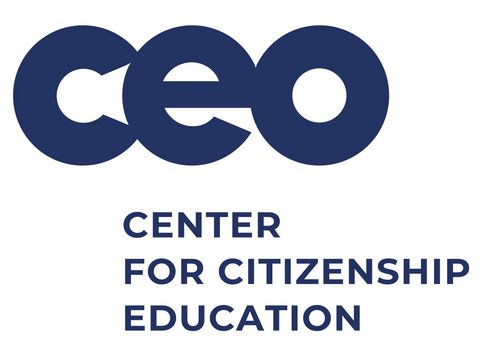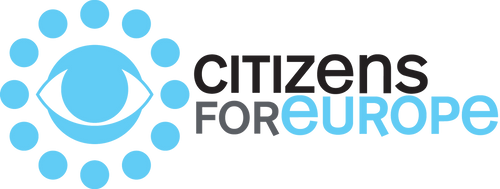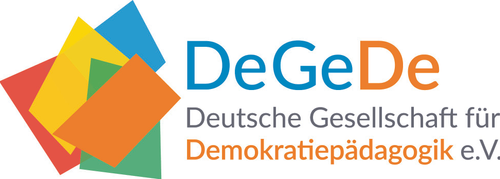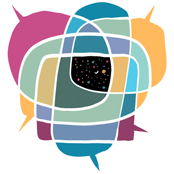Project
This toolkit for youth workers and teachers was developed in the framework of the European project Democratic Innovations in Youth Work (DIYW) that was co-funded by the European Union Programme Erasmus+ and initiated by four civil society organisations and social businesses – Catalan Association of Youth Policies Professionals (Spain), Center for Citizenship Education (Poland), Citizens For Europe (Germany) and DeGeDE (German Society for Democratic Education - Germany). The aim of the project is to tackle the growing democratic disenchantment and erosion in Europe and support teachers and youth workers in empowering young people to envision a democracy beyond voting, to envision themselves as an active part of a building a participatory democracy.
From January 2021 to August 2023 DIYW brought together youth workers, teachers, civil society actors, young people, video-makers as well as experts in democratic innovations. They developed, tested and disseminated various didactic materials that support youth workers and teachers to introduce to young people various Democratic Innovations. Those innovations have been designed and implemented to advance democracy and to involve people, and especially young people, more actively in designing policies and decision-making that affect their lives.
The Toolkit
This toolkit supports youth workers and teachers in introducing the topic of democratic innovations in their work with youth and in applying participatory approaches. The toolkit proposes a set of non-formal education activities and methods to introduce this topic to young people aged 12-20, with the aim to inspire them to participate more in the decision-making of their schools and communities.
We address the following 3 kinds of democratic innovations that can be introduced in different contexts of youth work:
- Participatory budgeting
- Citizens’ assemblies
- Self-organised youth groups & digital participation tools
For each of these 3 innovations, this toolkit contains the following elements:
- 3 short videos showcasing each democratic innovations from 3 countries - Germany, Spain (Catalonia) and Poland. Each video presents participatory mechanisms that allow people to take part in decision-making processes and could be presented as an example of good practice.
- A set of 3 activities to be held with youth practising each democratic innovation. Each activity is linked to one video. Activities are intended for groups of young people in schools and youth groups. Every activity is meant to be implemented by a teacher or youth worker and contains detailed step by step descriptions. Activities are of different lengths (from 45 minutes to a few hours). Some of them introduce a given democratic innovation to young people. Most of them, however, contain elements of joint decision-making.
This toolkit is meant to serve your everyday work - you can choose how many activities you will use and customise them to your (and your group’s) needs.
Presented methods and examples of activities are not the only solutions, just as there are no complete ways to solve the problem of a democratic crisis, nor are there end-all be-all answers to various challenges of contemporary times. This toolkit is meant to be the first step for you on the journey to introduce democratic innovations as a topic in your work with youth - we wish you good luck!
What are Democratic Innovations?
Democratic innovations are participatory processes and tools that enable and empower people to be involved in the decision- and policy-making beyond recurring elections, e.g. in communities or institutions, from local to supranational level. Democratic innovations are developed as an answer to the democracy crisis around the world. The diagnosis of this crisis was that citizens are disappointed by current democracies because they do not feel real influence on the issues that matter to them. Apart from a selected group of representatives who have been elected and who have a say in the final decisions, the rest of the community are rather passive observers and recipients of top-down decisions.
The idea of this toolkit emerged from the conviction that the outdated structures of hierarchical institutions and nation-state administrations – established many years or even centuries ago – no longer correspond to the needs of current and future generations when it comes to how democracy works. However, besides the most widespread model of ‘representative democracy’, there are also other, complementary and alternative models (e.g. ‘participatory’, ‘deliberative’, ‘digital’ ‘liquid’) to design democracy and decision making. Although they are less known, they have given rise to a number of ambitious participatory processes, which respond to deep problems and malfunctions based on traditional mechanisms of ‘representative democracy’.
The presented democratic innovations in this toolkit are not the only solutions, just like there are no complete ways to solve the problem of democratic crisis.. We believe they will simply constitute a good source of inspiration for teachers and youth workers who want to support young people in creative problem-solving through participatory processes, and who want to be a part of the transition themselves towards a more participatory democracy, in class, in a youth club, in the municipality or beyond.
Partners
-

The Catalan Association of Youth Professionals (ACPJ) was founded in 2004 with the aim of regulating the work of youth professionals and defending them before the institutions.
To achieve this, we work in different lines, such as vindicating the social and labour dignity of the youth group, representing members and associates before the institutions that carry out youth policies, promoting the design of targeted training programs to these professionals, to establish the necessary mechanisms to guarantee the territorial representation of all the associates, to organise formative and social activities to foment the cohesion of the group and to promote the development of the youth policies
-

The Center for Citizenship Education (CCE) is the largest educational non-governmental organisation in Poland. With CCE support teachers bring to school methods and topics that help students engage in their education and better cope with the challenges of the modern world.
We run programs that develop faith in our own capabilities, openness and critical thinking, teach cooperation and responsibility, encourage engagement in public life and social activities. We follow current trends and respond to educational challenges that appear in a changing world.
The solutions proposed by CCE are based on over 28 years of experience, expert knowledge and cooperation with practitioners. About 40 thousand teachers and school directors from almost 10 thousand schools all over Poland use our support.
-

Citizens For Europe gUG (CFE) is a non-profit organisation based in Berlin with a focus on empowering civil society, strengthening democracy, as well as on promoting diversity and dismantling discrimination and racism. Since 2010 we have been advocating for a more participatory and inclusive society at the local and European level and we strive for representation of all marginalised communities. Our activities range from research and publications to empowerment through workshops/trainings, consulting on diversity and inclusion, collection of anti-discrimination and equality data, to grassroots activism and audio-visual educational projects. These activities are implemented by our interdisciplinary and diverse team, e.g. People of Color, in collaboration with our networks and experts in academia, politics, civil society and communities. Our projects receive broad attention in the media, politics and communities.
-

The German Society for Democracy Education (DeGeDe) is a network of actors from education and educational practice, educational research as well as education administration and education policy, which aims to promote and bundle national and international discourses on democracy education and to set impulses.
The goal of DeGeDe is to empower children, youth and adults to help shape a democratic and inclusive society. Therefore, DeGeDe promotes the democratisation of formal and non-formal educational institutions and organisations. We support children, youth and educators to build subject-specific and cross-curricular democratic competencies and to experience self-efficacy as citizens in democracy as a way of life, society and governance.
We promote the further development of democracy education through discussions among members, practical projects and the connection to social science discourses, especially the theory of democracy.

 DIYW
DIYW
